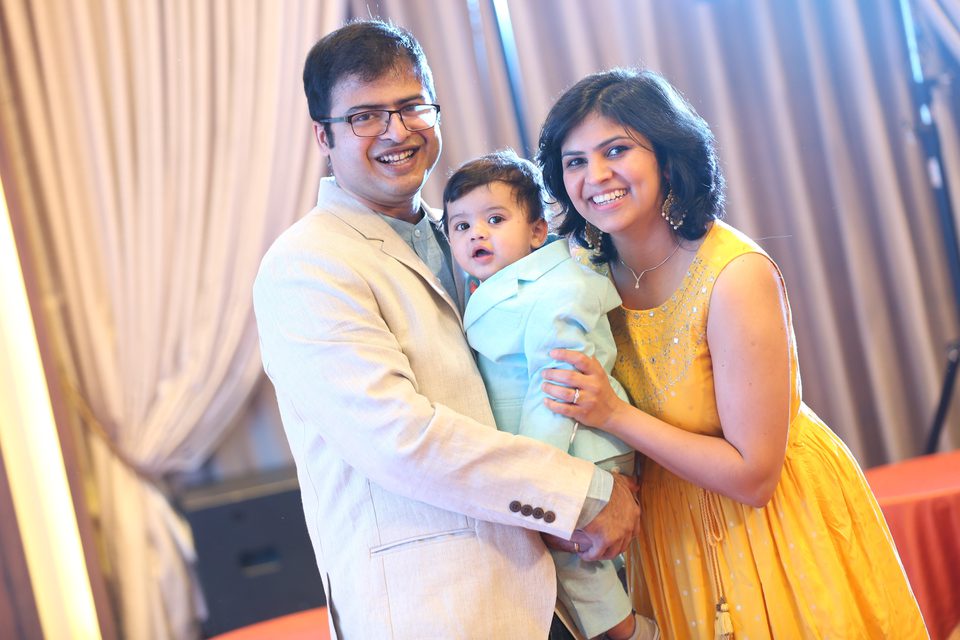A Common Infection, A New Mom and the Fight of a Lifetime

On May 5, 2017, four days after she gave birth to her son, Pallavi Tiwari was rushed to the emergency room at UPMC Magee-Womens Hospital in unbearable pain and fighting a 105 degree fever. Her pulse raced uncontrollably; chills racked her body. What had seemed like labor-related lower back pain was actually an E. coli infection that had spread to her bloodstream, and Pallavi was fighting for her life.
“I remember clinging to my nurse’s hand and telling her to not let me die,” Pallavi said. “She put cold towels on my head and promised I wouldn’t. I didn’t believe her, though. I thought everything I was scared of my whole life was coming true.”
When she was 3 years old, Pallavi’s mother died during childbirth. Losing her mother dramatically shaped Pallavi’s youth, and for most of her life, Pallavi was certain she didn’t want to have children: “I told my husband before we married I was too scared to have kids.”
Over time, though, Pallavi began to change her mind and realized she did want to become a mother. A scientist by training, Pallavi prepared herself as much as possible, through classes and reading, to understand pregnancy, labor and delivery. Her pregnancy was uneventful, and while her labor was hastened because she began leaking amniotic fluid in the 39th week — heightening a risk for infection — it, too, went well. She gave birth to her son, Abir, on May 1, 2018, and two days later she and her husband, Vikas Menon, took their new baby home.
After leaving the hospital, Pallavi felt weak and not like herself, but attributed those symptoms to her labor and delivery. She knew she wouldn’t fully recover for several weeks, but when she developed stabbing pains in her lower back, she grew concerned. Convincing herself these pains were normal, Pallavi struggled through them until four days after Abir’s birth when she emerged from the shower, feverish, chilled and unable to walk. Her husband called an ambulance, which took her to the ER.
“I could hear my husband crying. I could hear my father crying. I knew I had a son but I didn’t know his name,” Pallavi recalled. “When paramedics asked, I couldn’t remember my own name.”
Pallavi’s doctors knew she must have an infection of some sort, and started intravenous antibiotics immediately. For Pallavi, everything – from her husband calling the ambulance to the administration of antibiotics – happened just in time. Ten minutes later for either could have cost her her life.
Most healthy people carry strains of E. coli in their intestines that never cause any harm. But when amniotic fluid begins leaking prior to labor, it heightens the risk of a variety of infections for women, including E. coli. In Pallavi’s case, the infection moved into her bloodstream undetected – she didn’t become symptomatic until after she left the hospital.
Over a year and a half later, Pallavi has fully recovered, even playing tennis regularly. Her experience has inspired her to become a vocal advocate for educating women about understanding their bodies and trusting their instincts. She is collaborating with leadership at UPMC Magee-Womens Hospital to educate women about the “fourth trimester” – the 45 days after delivering a baby when labor and delivery can still significantly impact a woman’s health.
More than anything, Pallavi encourages women to pay attention to their symptoms and call their doctors if anything seems wrong.
“After you have your baby everything becomes centered around him or her. As a new mom, you sometimes feel like you have to put your own recovery aside for the needs of your newborn,” she said. “But you matter – your recovery matters. Understanding your body, and what is and is not normal during recovery, that matters too.”
In October of 2018, Pallavi shared her story with over 500 scientists, physicians and women’s health advocates at the Magee-Womens Research Summit, a two-day research summit dedicated solely to women’s health research.
“I share my story because I want to help educate women,” said Pallavi. “We learn how to care for our babies but we don’t necessarily know how our own bodies should react and feel after having a baby. It’s something we need to talk more about, and I’m thankful maternal health is something Magee takes so seriously.”
Be the First to Know
Get the latest research, news, events, and more delivered to your inbox.